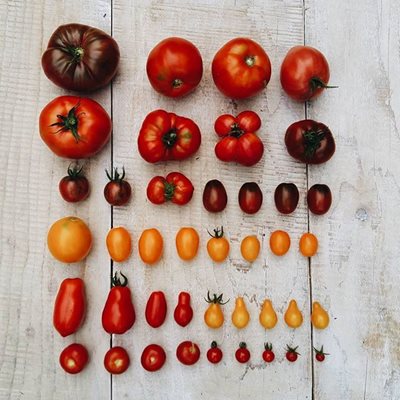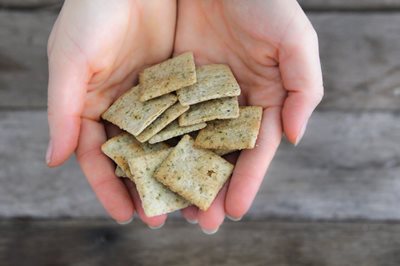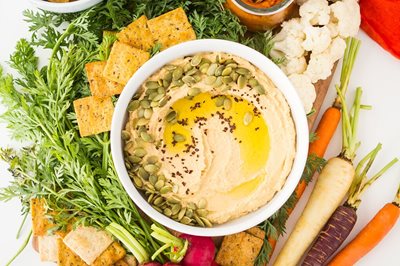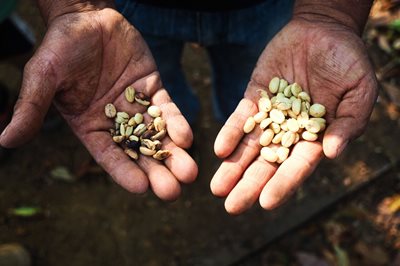It’s an exciting time for consumers. There are more new food companies than ever, more food products for specialty diets and so many new food options. Natural food stores, online retailers, and many conventional food stores have given consumers the ability to expand what they eat and the foods they buy.
It also means there are a lot of new food certifications, labels and all kinds of other information. It might feel like you’ve got to become a detective to understand it all and make sure you’re aligning with your personal food philosophy. But don’t worry! We’ve done the homework for you. Consider this your quick and dirty (read: clean!) guide to common food certification labels, or as we call them in the biz: "certs".
Certifications to explore & where you might see them:
Organic – 100% or certified organic foods are made or grown without the use of synthetic fertilizers, pesticides, herbicides, ionizing radiation, sewage sludge, or genetically modified organisms. It’s also eggs, poultry, meat, dairy products and fish that aren’t given antibiotics or growth hormones, and in some cases genetically modified feed. Many organic products are also non-GMO, however, not all. Labels will note when something doesn’t have genetically modified ingredients.

Non-GMO – Non-GMO food is food made without genetically modified organisms, or organisms that have altered DNA. You’ll see the Non-GMO Project verification stamp on non-GMO foods or labels will state clearly that GMOs are not included in the ingredients. With meats, non-GMO means that the animals are not fed GMOs during farming. The FDA does not currently allow genetically modified meats.
Gluten-Free – Gluten-free means a food item is either made without gluten or has its the gluten removed. Gluten is a general term for the proteins that exist in wheat, rye and barley to help foods keep their shape. Gluten can be found in a large number of foods that go beyond breads and pastas, including sauces and salad dressings. You’ll even see soap that’s labeled gluten-free.

Vegan – Vegan means that an item does not contain any animal products. It doesn’t just mean the absence of meat, but also that the item does not include animal fats, dairy, eggs, or other animal byproducts. Many vegan products also exclude the use of honey (hey, honeybees!). Vegan products aren’t limited to food either. You’ll see vegan listed on beauty and other products as well and it means the same.
Vegetarian – Vegan and vegetarian are closely related in that they do not include animal meats. However, vegetarian products often use dairy ingredients like milk and butter or may have other animal byproducts. Vegetarian labeling tends to be limited to food, but you will sometimes find it included in beauty products as well.

Palm Oil-Free – Consumers are increasingly seeking foods made without palm oils due to the severe impact the palm oil industry has on the wildlife and environment. Palm oil is essentially a vegetable oil derived from the oil palm plant, mostly found in Africa. It’s not just used in food products, but also shampoos, makeup, and many other consumer goods. Companies that make products without palm oil note it on labels.
Paleo – Paleo is a popular diet that eliminates the consumption of processed foods. Also known as the “caveman diet,” Paleo foods do not include items like sugar, candy, pasta, crackers or cereal. When you see Paleo certification on food labels, it means the product does not include ingredients that go against the Paleo diet.
Fair Trade – Fair Trade labels mean that a product is sourced and made with care for people and the environment. This particularly includes fair payment to the farmers and other individuals that create ingredients and products. But it can also mean products are sourced responsibly with animals and the environment in mind.

Rain Forest Alliance – Certification by the Rain Forest Alliance helps provide consumers with the assurance that the products they’re buying are made with care and concern for animals and the environment. This includes biodiversity to maintain variety and diversity among species within the environment, and sustainable livelihood to help prevent poverty and other issues. While it’s very similar to Fair Trade in that it helps ensure farmers are paid fairly, much of the Rain Forest Alliance efforts It goes beyond food to all kinds of consumer products as well as hotels and more.
Dairy-Free – Dairy-free might seem like a no-brainer. But it isn’t just that a product might exclude dairy ingredients like milk or cream. It can also include foods that are free of milk fat, casein, whey, or lactose. Be sure to read labels carefully because not all dairy-free labeling means the same thing.
Soy-Free – Soy free products exclude the use of soy. Soy-free labeling tends to be predominantly on food items and can include everything from sauces and soups in addition to processed and other foods.